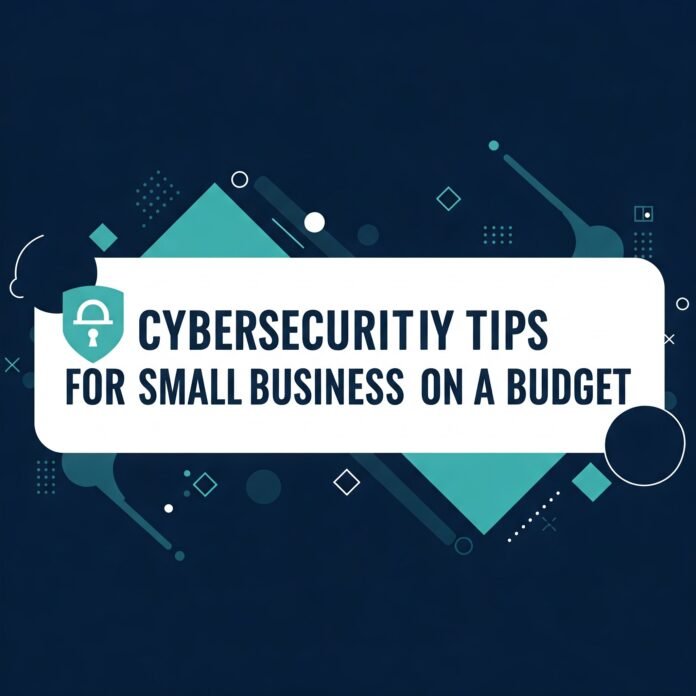In the digital age, small businesses are the most vulnerable to cybercriminals. Without strict security measures, our business could fall victim to data breaches, phishing scams, or ransomware attacks. However, cybersecurity can be implemented on a small budget. Here are a few cost-effective cybersecurity tips for small businesses that will enhance security and still fit quite comfortably within the budget.
1. Educate Your Employees
There are numerous low-cost ways to improve your business security through employee education. Regularly carry out training to their staff about how to identify phishing emails, how to establish a password level, and follow best practices when it comes to security.

2. Use Strong Passwords and Multi-Factor Authentication (MFA)
Using unsafe passwords is an invitation to get hacked. You need to emphasize to your employees that they create strong, unique passwords and use multi-factor authentication (MFA) wherever possible. MFA requires a second form of verification, thereby providing an extra level of security.

3. Install Free or Affordable Antivirus Software
There are several dependable and free or low-cost antivirus software solutions in which case you may pick something like Avast, Bitdefender, or possibly Microsoft Defender. Antivirus programs that will keep your business computers under protection from malware and viruses should be installed everywhere inn the organization.
4. Keep Software and Systems Updated
Obsolete software is a frequent means of entry for cyberattacks. You need to maintain the up-to-dateness of the software on your operating system, browsers, and apps to fix security vulnerabilities that may become the rooting.
5. Use a Firewall and a Secure Wi-Fi Network
Behind the firewall is the first line of defense against cyber threats. Every product-router defense includes a secure firewall network, which should not be turned off. Use a secure Wi-Fi network with protection such as passwords and encryption that ensures the entry process is disabled decent for those unauthorized people looking to access the network.
6. Back-Up Data Regularly
A little data loss could be reaching a severe calamity for a small business. Implement automatic backup with cloud services like Google Drive, Dropbox, or external hard drives. Make sure backups are secure and encrypted.

7. Implement Access Controls
Access to sensitive data should be granulated based on the job roles employees are in. Only allow employees to access data necessary for the completion of their duties. This will go a significant way toward curtailing such internal attacks and therefore leaking of details by accident.
8. Secure Email Subjects
Email is the largest point of the entry for cyber criminals. Utilize email filtering tools, educate your staff on detecting phishing attacks, and support spam filters to cut suspicious emails off.
9. Encrypt Sensitive Data
Sensitive files and communications should be encrypted. Some free programs, for instance, like BitLocker or VeraCrypt are available to offer data encryption for the storage of powerful and engaging device data.
10. Remote Security Monitoring and Analysis
Monitor the catching up of unusual events in order to screen the pattern of network activity. Alerts can be set for any work either at log-on or during data access that might flag as unusual. Free security monitoring tools could include Snort and Open Threat Exchange.

Conclusion
To stop and counter such cyber threats, small businesses have not necessarily needed a big budget. One should follow these low-priced cybersecurity strategies to keep their business data healthy and cloudless against potential threats hanging at large. For more detailed cybersecurity insight and smart-spectrum cloud cybersecurity solutions, please visit Jazz Cyber Shield. Stay safe and protect your businesses against attacks.



